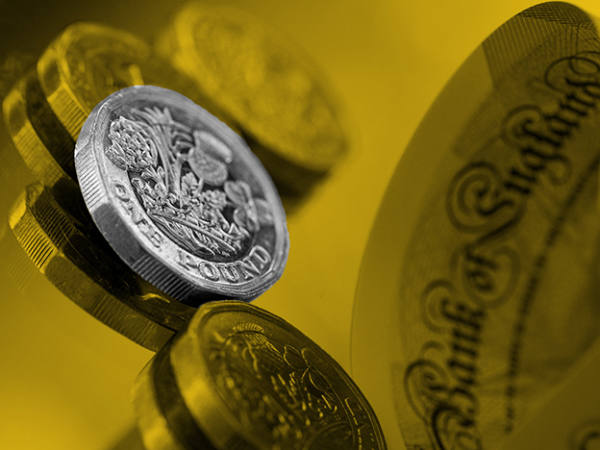- Basil Fawlty’s catastrophic hotel can provide the struggling tourism industry with lessons in flexibility, veganism and international cooperation
Fawlty Towers did not last very long – 12 episodes to be precise (now there’s a golden nugget of information, to take forth to your next pub quiz). Its guests, bar a few senile regulars, were consistently dissatisfied. This was largely due to the hotel’s tyrannical owner, Basil Fawlty who was once described by his wife as a “big, bad tempered tomato.”
The exhausting series of disasters that took place every episode, will resonate with the current UK hospitality industry which lost approximately £200m every day during 2020, according to research commissioned by trade body Hospitality UK, and is currently facing immense uncertainty from the government’s list of safe international holiday destinations. To bounce back the industry can perhaps take some tips from Fawlty’s abominable example.
Self-service works
At Fawlty Towers the quality of service was distinctly lacking. The staff were frequently distracted from serving their customers by drunk chefs and missing rats and one poor customer is still waiting to be served “a gin and orange, a lemon squash and a scotch and water”. Should the hotel have lasted into the Covid era, the chaos induced by social distancing rules and PPE requirements would have been excruciating.
For the hospitality industry, flexibility is going to be key to surviving the next phase of the pandemic. Airbnb (NASDAQ: ABNB) looks well placed to benefit. The company operates an online marketplace for lodging, from single rooms to luxury accommodation. Most accommodation uses a self-service system, meaning guests can bring their very own gin and orange, lemon squash and scotch and water. On the day of its IPO last December, Airbnb shares increased by over 112 per cent.
The stock has adjusted since then, and currently trades at around $135 per share, but its market capitalisation is not far off rival travel giant Booking Holdings (NASDAQ: BKNG), and far surpasses Expedia (NASDAQ: EXPE), as well as hotel chains such as Marriott (NASDAQ: MAR) and Hilton (NYSE: HLT). While business travel is likely to stay low, as we enter the summer months domestic recreational travel will pick up and Airbnb’s flexibility is well suited to the constantly changing rules.
Vegan trends
As a culinary experience, Fawlty Towers failed to deliver. Fawlty frequently lacked fundamental ingredients, on one occasion having to admit to being “out of Waldorf”, and on other: “ducks off”. However, perhaps the hotel’s trifle offering would have been better suited to today’s vegan trends. The global vegan and vegetarian market is now worth over $50bn, and is predicted to grow annually by 20-30 per cent in the coming years.
Beyond Meat (NASDAQ: BYND) is a huge stock market success story. In May 2019 shares rocketed 163 per cent, boasting the best performance for an IPO in nearly two decades. Beyond Meat sells its products at 28,000 US retail stores and is increasing its presence in Europe. It has also struck deals with restaurant chains including McDonald's (NYSE: MCD) and restaurant operators such as Yum! Brands (NYSE: YUM). Perhaps in hindsight, the phrase “ducks off” showed great culinary vision, that was unfortunately a few years ahead of its time.
Foreign customers and employees
Fawlty Towers showed little tolerance or respect to its foreign guests. An Australian was manhandled and a German family left devastated by Fawlty’s questionable decision to impersonate an unmentionable dictator’s “funny walk”. Had Fawlty pursued a better relationship with his overseas visitors, he might have enjoyed the success that much of the rest of the UK has long enjoyed. In Ireland, investment in international tourism has seen revenue from overseas climb steadily in recent years. In 2018, it exceeded €5bn for the first time and accounted for 3 per cent of Ireland’s GDP. Much of this growth came from North American visitors, who helped overseas revenue grow by 30 per cent between 2016-18.
Today, those from Germany, and most other countries, must quarantine for 10 days on entering the UK. But perhaps this allows them to avoid idiotic hotel owners, ricocheting offensive war references before claiming ‘I mentioned it once, but I think I got away with it all right’.
Spanish waiter, Manuel, is badly abused by Fawlty who severely underestimates his employee. Although his poor grasp of the English language is an obstacle, Manuel is a loyal worker and shows great determination to improve: “You see I speak English well, I learn it from a booook”.
As the fallout from Brexit comes into force, the new points-based system will prevent many overseas low-skilled workers from moving to the UK. Applicants will need to meet a minimum 70-point mark, so that only the “brightest and the best” will gain a skilled work visa. EU low-skilled workers make up a significant portion of the UK’s hospitality workforces and many establishments are already struggling to fill summer vacancies. The job market has become incredibly competitive due to Covid, and this will only intensify as students realise they can no longer do that ski-season or European internship they had dreamed of.
The hospitality industry has a long way to go if it is to make a post-Covid recovery. Travel and tourism supports 1 in 11 jobs in the global economy, and these workers will require the cool, calm and collected approach of Fawlty’s hotel manager Polly in order to cope with the sudden change of pace. The troubling alternative is a broken industry run by “aging, brilliantined stick insects” and “great sabre-toothed tarts”.











